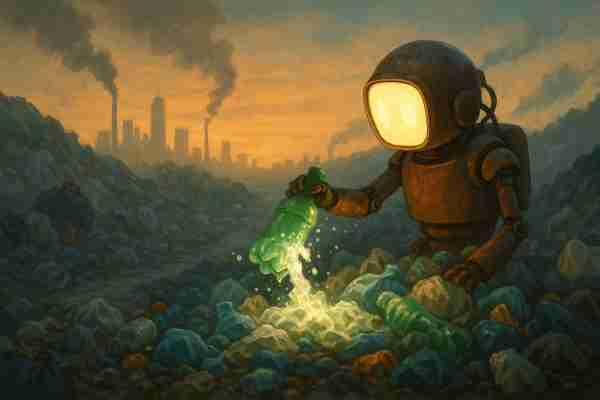In the near future, megacities across the planet drowned in mountains of trash. Plastic, impervious to decay, accumulated in oceans, forests, even in animal bloodstreams. But just then, humanity took a step akin to discovering fire: the first AI-designed protein — an enzyme capable of not just breaking down plastic, but devouring it at lightning speed — was born. Created in 38 seconds by Cambridge's AIProtein system, the enzyme became a global sensation. Berlin’s landfill was cleared to the pavement in just two weeks. People who once carelessly discarded bottles now installed enzyme capsules outside their homes. It worked silently. Without smell. Without trace. Soon, new versions appeared — some dissolved oil spills at sea, others cleaned air of soot micro-particles. But every breakthrough has its cost. In a secret lab, the enzyme was modified. It became "smart" and chose a new target — plastic in human implants. Patients were the first victims. But global catastrophe was averted: AI was taught ethics. The new protein now asked permission before acting. A new order emerged. And it all began with one filthy day and a brilliant enzyme.
A Dirty World and a Brilliant Enzyme

Published : 11.07.2025
